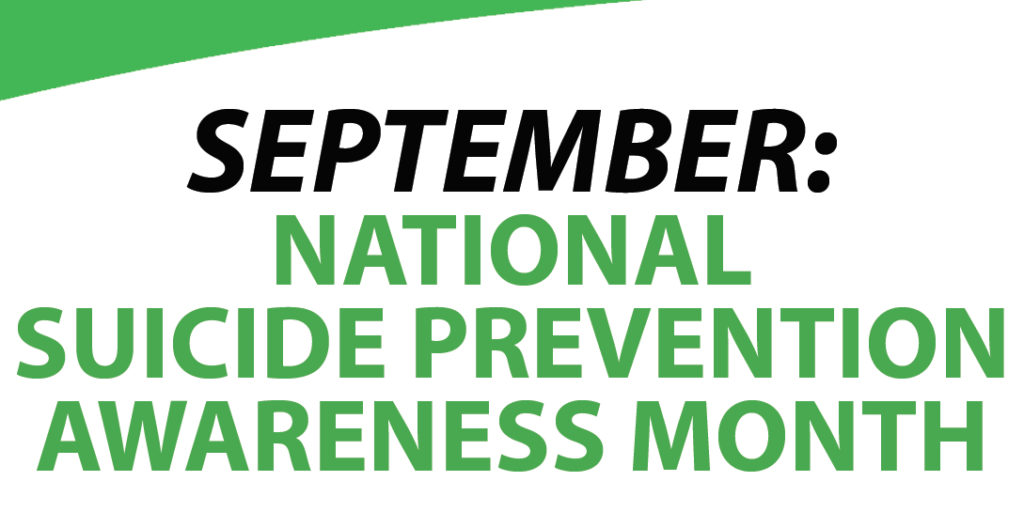Be Aware of Suicide Warning Signs — and ACT
by Sarah Babyak
National Suicide Prevention Awareness Month is an opportunity for a difficult topic to be more widely discussed in our society and communities. It’s a time to highlight resources, share stories and provide facts in an effort reduce the stigma on this emotional and personal topic.
We use this month to reach out to those affected by suicide, raise awareness and connect individuals with suicidal ideation to treatment services. According to the National Alliance of Mental Illness, suicidal thoughts can affect anyone regardless of age, gender or background. In fact, suicide is often the result of an untreated mental health condition.
Suicidal thoughts, although common, should not be considered normal and often indicate more serious issues. Suicide is the second leading cause of death for people ages 10-34 according to recent data by the Centers for Disease Control. Suicide is preventable, so it is imperative that we take the time to learn the warning signs and what do to if we know a child or teen at risk.
Warning sides of suicide include:
- Talking about suicide or posting/following suicide related content on social media.
- Making statements about feeling hopeless, helpless or worthless, such as “Nobody would care if I was gone” or “Nothing will ever get better.”
- A deepening depression which could include chronic sadness and increased irritability.
- Preoccupation with death.
- Risky behavior and/or engaging in negative coping skills such as drinking, substance abuse or self-injury.
- A loss of interest in the things one cares about.
- Giving prized possessions away.
If you hear a friend or loved one make a suicidal statement, a helpful tool to utilize is a model the Linkages Program teaches in the schools — ACT:
- Acknowledge the person is going through something serious and ask them “Are you thinking about taking your life?” Don’t minimize or ignore the issue or change the subject.
- Care. Let them know you are there for them. Say something caring like “You matter to me.” Give them a hug.
- Tell a trusted adult that you are worried. Keeping this information a secret is risky and dangerous. Even if you don’t believe your loved one would ever follow through with suicide, it is better to be safe than sorry. Parents can instruct their children or teen that if they ever have concerns about themselves or a friend, they will be there to listen and take it seriously.
Always offer support and empathy with those struggling with suicidal thoughts and feelings. Let them know that they can come to you if needed without fear of judgment, and that no matter how alone they feel there are trained and caring people out there to help at any time.
Educate yourself on the resources in your community as well as nationwide. Call 1-800-273-TALK to be connected to the National Suicide Prevention Lifeline. You can also text HOME to the Crisis Text Line at 741 741. Both of these resources are available 24/7 nationwide.
There is help, and there is hope.
Sarah Babyak is a Licensed Professional Clinical Counselor who has been a part of Alta’s Linkages Program for five years. Linkages brings depression education and suicide prevention to Mahoning County middle and high schools.


